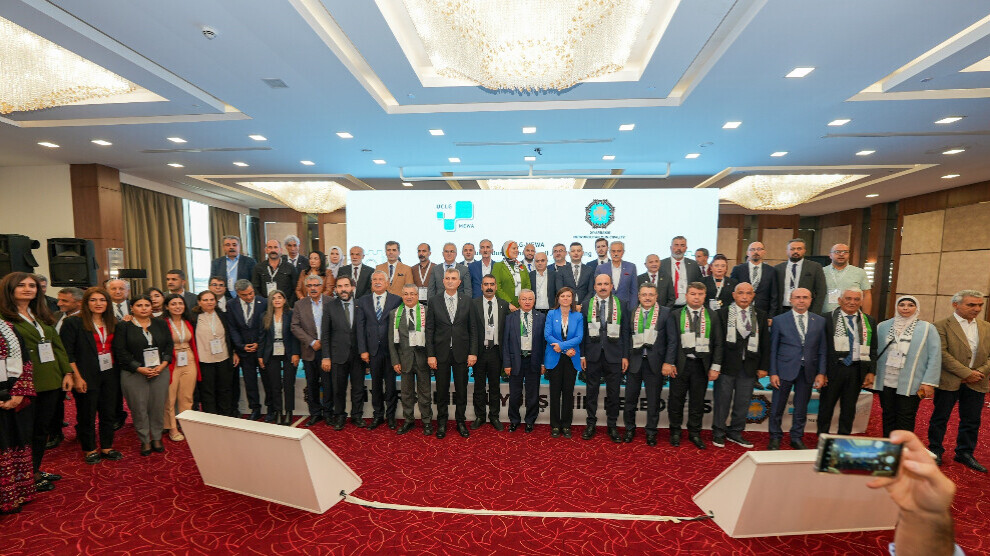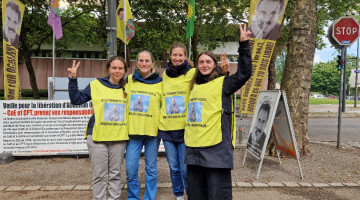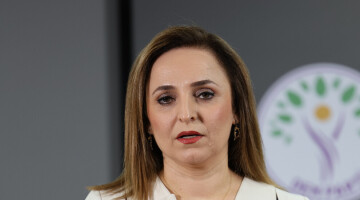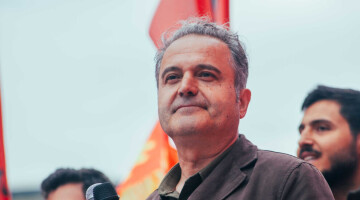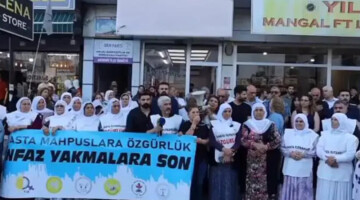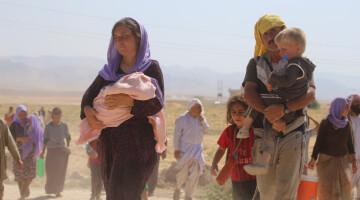The United Cities and Local Governments Middle East and West Asia Section (UCLG-MEWA) Executive Board and Council Joint Meeting hosted by the Metropolitan Municipality started in Amed (Diyarbakır) on Wednesday.
The meeting titled ‘Local Diplomacy: Building the Urban Future’ is attended by Amed Metropolitan Municipality Co-Mayors Serra Bucak and Doğan Hatun, UCLG-MEWA Secretary General Mehmet Duman, and the mayors and executives of nearly 30 national and international metropolitan municipalities.
Speaking at the opening of the meeting, UCLG-MEWA Secretary General Mehmet Duman said: “I believe that together we will take steps towards building stronger and more sustainable cities. The rich culture and strategic location of the Middle East has always maintained its importance. However, our region is facing very serious chaos today and is struggling with important problems such as internal and external power. This situation deeply affects all institutions and organisations in the region, especially local governments, and the people of the region. Our duty as local governments is to increase solidarity in the face of the difficulties experienced and to act with a management approach that prioritises equality, peace and justice.”
Serra Bucak, Co-Mayor of Amed Metropolitan Municipality, said: “Our city brings together different cultures, languages, beliefs and identities and continues to be a fruitful intersection point today, as it has been in its rich and ancient history for thousands of years.”
Serra Bucak stated that during the two-day meetings they would discuss important topics on the agenda of cities, covering the main areas of responsibility of local governments, and said: “I have no doubt that we will benefit from these discussions at the highest level and that we will achieve positive results for our cities. However, we have come together with the bitterness of being incomplete. We wish we could come together with all the component mayors and administrators of the Middle East and West Asia. Tayseer Abu Sneineh, the esteemed President of UCLG-MEWA, member mayors, local government representatives, who should be here with us today, could not physically attend the meeting due to the war, genocide and occupation policies in their own countries and regions.”
Serra Bucak further stated the following:
“In this age when war, conflict, exploitation, polarisation, poverty and misogyny are imposed on us as a special war policy, especially in the Middle East and the Kurdish geography, while we urgently need to build diplomacy channels starting from localities and develop cooperation between cities and regions, obstacles are placed in front of us to build bridges of solidarity with mechanisms abroad.
Even though we live in completely different geographies and speak different languages, these obstacles unite us in common experiences; they reveal how this systematic war, exploitation and rule by isolation is a common mind. If the mind that isolates, segregates and makes localities dependent on the centre is common, then our insistence on togetherness, participation, the principle of governance and, most importantly, our insistence on social peace should also be common, and we should be able to develop life models in accordance with this determination. From this point of view, I would like to re-emphasise that local diplomacy, increasing cooperation between cities and regions is of great importance in achieving a lasting and honourable peace. The channels of dialogue opened at the local level can carry the voices of peoples to the global arena and pave the way for peaceful solutions at the regional and international level.
In addition to the efforts to render the municipalities unable to work, society is being subjected to a politics of polarisation. As a matter of fact, we can see the consequences in our cities every day. Women are being killed by men, children are being disappeared, children are being murdered! Urban centres are witnessing the most severe form of poverty, and youth unemployment is higher than ever. Young people and women are facing a lack of a future and hopelessness. We have to raise the voice of ‘peace’, the most urgent need of all of us. Because in a geography where peace is not established, local democracy is doomed to turn into a hollow concept. In a geography where there is no peace, municipal services will always be incomplete, deprived and inadequate. That is why, despite our different cultural backgrounds, languages and beliefs, we are in the right place and time to develop urban diplomacy, interregional co-operation and establish solidarity networks.”

